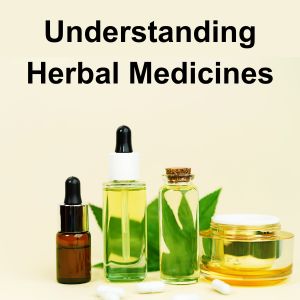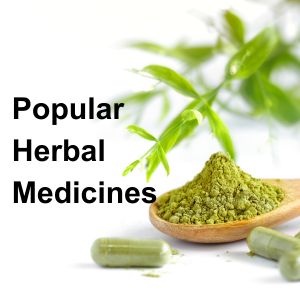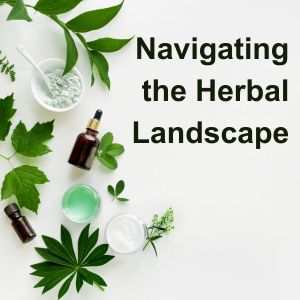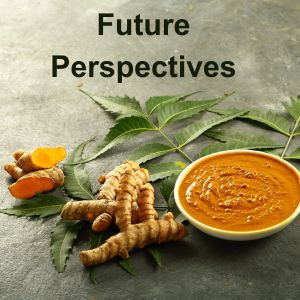Announcement
Get Ready for INDUS CUP 2K26! | Dates: 5–10 January 2026 | Stand a Chance to Win Cash Prizes up to ₹10,00,000!...Read more Get Ready for INDUS CUP 2K26! | Dates: 5–10 January 2026 | Stand a Chance to Win Cash Prizes up to ₹10,00,000!
We are excited to announce the Indus Hackathon 2025, an exhilarating one-day event organized by the CSE Department of Indus University....Read more We are excited to announce the Indus Hackathon 2025, an exhilarating one-day event organized by the CSE Department of Indus University.
26th ISTE Faculty Annual State Convention will be held at Indus University on April 27, 2023....Read more 26th ISTE Faculty Annual State Convention will be held at Indus University on April 27, 2023.
Get Ready for INDUS CUP 2K26! | Dates: 5–10 January 2026 | Stand a Chance to Win Cash Prizes up to ₹10,00,000!...Read more Get Ready for INDUS CUP 2K26! | Dates: 5–10 January 2026 | Stand a Chance to Win Cash Prizes up to ₹10,00,000!
We are excited to announce the Indus Hackathon 2025, an exhilarating one-day event organized by the CSE Department of Indus University....Read more We are excited to announce the Indus Hackathon 2025, an exhilarating one-day event organized by the CSE Department of Indus University.
26th ISTE Faculty Annual State Convention will be held at Indus University on April 27, 2023....Read more 26th ISTE Faculty Annual State Convention will be held at Indus University on April 27, 2023.

Herbal medications, also known as Phytotherapy, are medicines made from extracts of trees and plants. People have been using herbs for healing purposes for a long time across various cultures. Ancient Chinese and Indian Ayurvedic practices are examples of how herbal remedies have been used to improve people's health.
People seek more holistic treatment, considering a person's health rather than just treating symptoms. Another factor is concern about the potential side effects of traditional drugs, directing people to explore alternative options. Also, there is a growing understanding of nature's ability to heal.
In recent years, natural therapies, especially herbal medications, have gained more popularity & attracted a lot of interest. This increase in popularity can be attributed to several factors.
This article aims to provide readers with a complete awareness of herbal medications and the knowledge needed to navigate the diverse landscape of natural therapies. We aim to illuminate herbal medicines' historical significance and place in modern healthcare by investigating their definition, qualities, and cultural context.
Herbal remedies and traditional drugs work in many different ways. Herbal medicines are frequently made up of a complex blend of bioactive ingredients such as alkaloids, flavonoids, terpenes, and phenolic chemicals. These mixtures work together to provide medicinal advantages. Single active components in conventional pharmaceuticals are frequently isolated or synthesised.
Medical herbs are valuable essences from plants, such as leaves, stems, flowers, roots, and seeds. These natural remedies have been used for generations to prevent, treat, & manage a wide range of health issues. Common preparations include teas, tinctures, tablets, and topical therapies. Herbal drugs are defined by their organic nature, distinct chemical composition, and potential medicinal properties.

Herbal treatments have cultural significance and are often linked with spiritual beliefs and rituals. The knowledge has been passed down to generations and communities for years.
Herbal medicines have deep roots in ancient medicinal systems that evolved and thrived in diverse civilisations worldwide. Such methods include Ayurveda, Traditional Chinese Medicine (TCM), Native American healing practices, and Indigenous healing traditions. These healthcare systems emphasise a holistic approach to treatment, taking into account the physical symptoms and mental, emotional, and spiritual well-being.
Historically, remedies based on herbs have had significant effects on healthcare. Ancient civilisations such as the Greeks, Egyptians & Mayans used plant remedies extensively for treatment. Garlic's antibacterial properties, willow bark as an ache reliever (leading to the discovery of aspirin), and ginkgo biloba for cognitive support are all instances of herbal remedies that have influenced medical understanding and practice throughout history.

Recent scientific studies confirm many of these traditional uses.
Well-known plants such as turmeric, ginger, and garlic have been utilised for various diseases in Ayurveda and Traditional Chinese Medicine and have a long history of use. Curcumin, found in turmeric, have anti-inflammatory and antioxidant effects and the potential to help with conditions including arthritis and improve heart health. Ginger helps with digestion and reduces sickness. Garlic contains antimicrobial properties that could help the health of the heart.
While most people believe herbs like turmeric, ginger, and garlic are safe, it is necessary to be aware of precautions and potential interactions. Certain drugs, such as blood thinners or anticoagulants, may interact with specific plants. Before introducing herbal medications into their regimen, anyone with detailed medical concerns or using drugs should contact a healthcare expert. Some people may also encounter allergic reactions or gastrointestinal distress. It is critical, to begin with modest doses and gradually increase them while watching for any unwanted effects.
Herbal supplements are focused forms of herbal extracts, powders, or herbal mixtures. They reach in various conditions, including capsules, tablets, potions, and powders. Herbal accessories can be purchased in health food shops, pharmacies, and online. They are touted as a suitable way to absorb precise herbs and their health benefits.
Several factors must be considered when choosing herbal supplements. Look for trustworthy brands that track proper manufacturing practices and deliver extensive knowledge about herbal ingredients, such as sourcing and quality. It is best to aspire to the guidance of a healthcare expert or certified herbalist who can help you choose appropriate supplements based on your needs and health concerns.
Herbal supplement regulation and quality management can differ between countries. Regulatory agencies may publish recommendations and requirements to herbal supplement makers in various areas. However, caution is suggested because the pharmaceutical industry is more regulated than the herbal supplement sector. It is best to have supplements from decent companies that have them tested by a third party to confirm their safety, efficacy, and purity.
To use herbal supplements safely and effectively, knowing which plants are used in them, their potential interactions and contraindications, and how to choose reliable products are essential. Consulting with a healthcare professional can provide personalised guidance and help minimise any possible risks.
Assessing the reliability of herbal medicine claims: It is crucial to assess them objectively. Look for scientific proof, such as clinical studies and systematic reviews, to back up a particular herb's stated effects. Examine whether the material is based on sound research procedures and if it is consistent with expert consensus.
Integrating herbal medicines with conventional treatments: It is critical to inform your healthcare practitioner about any herbal medicines you are using or thinking about using so that they can assess potential interactions with conventional medications. They can assist in developing an integrated treatment plan incorporating herbal remedies with existing therapy, ensuring compatibility and minimising hazards. Collaborating with healthcare specialists enables you to receive full and holistic care.

Each person has distinct health issues and requirements. Individual approaches to herbal medications should be taken. When choosing and utilising herbal medicines, factors such as age, pregnancy or breastfeeding status, allergies, and pre-existing health concerns must be considered. Personalised approaches ensure that the herbs chosen are safe, effective, and consistent with the health and well-being of the individual.

Current developments in herbal medicine research: Due to the growing interest and demand for natural therapies, scientific research on herbal medicines continues to expand. Exploration of the mechanisms of action of herbal substances is a current trend
They are being researched for their potential in illness prevention and management.
Finding new bioactive chemicals in plants.
Research also focuses on understanding the molecular interactions between plants and the human body, offering light on the complexities of herbal therapy.
Integration of conventional and modern medical approaches: Combining traditional and contemporary medical techniques holds great promise for the future. Fusing rigorous scientific research with the extensive traditional knowledge of herbal therapies may create new treatment possibilities. Due to this integration, the finest of both worlds might be combined in individualised, comprehensive therapeutic approaches. Collaboration between traditional medicine practitioners, scientists, and healthcare professionals is essential to create evidence-based herbal medicine practices and promote this integration
Monitoring herbal remedies and ensuring their quality: An international effort is being made to regulate herbal medications. Regulatory agencies in various countries are addressing the manufacture, labelling, and quality control of herbal medicines. These programmes aim to guarantee the products' homogeneity, efficacy, and safety. Manufacturers are gradually adopting Good Manufacturing Practices (GMP) to meet quality standards to increase consumer confidence.
The World Health Organization (WHO) and other international organisations provide their suggestions & guidance on how to regulate and use herbal medicines precisely. These procedures aid in the harmonisation of practices and the assurance that herbal medicines satisfy established safety and quality criteria. Collaboration across countries and exchanging knowledge and best practices contribute to developing a worldwide framework for regulating and standardising herbal medication.
Increasing transparency and customer knowledge: An effort is being made to ensure that herbal products have clear and accurate labels that include information on ingredients, dosage, and any possible hazards. Increased consumer awareness of the proper and safe use of herbal medications.
The purpose of consumer education campaigns is to provide proper awareness of Herbal medication.
The future of herbal medicines seems promising as scientific research advances and regulatory systems improve. Integrating traditional knowledge with current research, supporting high-quality standards, and encouraging transparency will all help to grow and embrace herbal medicines in mainstream healthcare. Due to this dynamic terrain, Individuals can confidently navigate the world of natural treatments and optimise their health and well-being.
Herbal medicines have a long history and are becoming very popular. Individuals looking for alternative approaches to health and well-being have many natural treatments. However, it is vital to approach herbal medicines with precaution. Individuals can guide the herbal world more effectively by finding reliable information, interacting with healthcare specialists and herbalists, and being conscious of safety risks.
